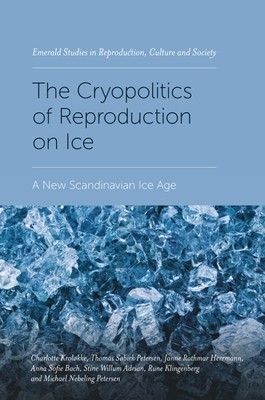
- We will send in 10–14 business days.
- Author: Charlotte Kroløkke
- Publisher: Emerald Publishing Limited
- ISBN-10: 1838670432
- ISBN-13: 9781838670436
- Format: 15 x 23.1 x 1.8 cm, hardcover
- Language: English
- SAVE -10% with code: EXTRA
Reviews
Description
Reproduction has entered a new ice age: the ability to cryopreserve reproductive cells, tissue and embryos are fundamentally changing our understanding of what it means to be a reproductive citizen. This book explores the ways in which visions of desirable reproductive futures entangle with advances in freezing technologies, with the authors situating their discussions of cryo-fertility within the Scandinavian region, asking:
- How does cryopreservation help mobilize particular understandings of reproductive time, reproductive rights and reproductive autonomy? - What values are embedded within Scandinavian laws that seek to regulate cryo-technologies? - How are frozen states enacted in clinical settings and how do the women and men who freeze imagine the preservation of reproductive parts?
These questions demand a collaborative approach. The authors empirically cut across the arenas of bioethics/law, practices/experiences, and culture/commerce in order to pin down often complex and far-reaching answers.
EXTRA 10 % discount with code: EXTRA
The promotion ends in 16d.04:44:55
The discount code is valid when purchasing from 10 €. Discounts do not stack.
- Author: Charlotte Kroløkke
- Publisher: Emerald Publishing Limited
- ISBN-10: 1838670432
- ISBN-13: 9781838670436
- Format: 15 x 23.1 x 1.8 cm, hardcover
- Language: English English
Reproduction has entered a new ice age: the ability to cryopreserve reproductive cells, tissue and embryos are fundamentally changing our understanding of what it means to be a reproductive citizen. This book explores the ways in which visions of desirable reproductive futures entangle with advances in freezing technologies, with the authors situating their discussions of cryo-fertility within the Scandinavian region, asking:
- How does cryopreservation help mobilize particular understandings of reproductive time, reproductive rights and reproductive autonomy? - What values are embedded within Scandinavian laws that seek to regulate cryo-technologies? - How are frozen states enacted in clinical settings and how do the women and men who freeze imagine the preservation of reproductive parts?
These questions demand a collaborative approach. The authors empirically cut across the arenas of bioethics/law, practices/experiences, and culture/commerce in order to pin down often complex and far-reaching answers.


Reviews